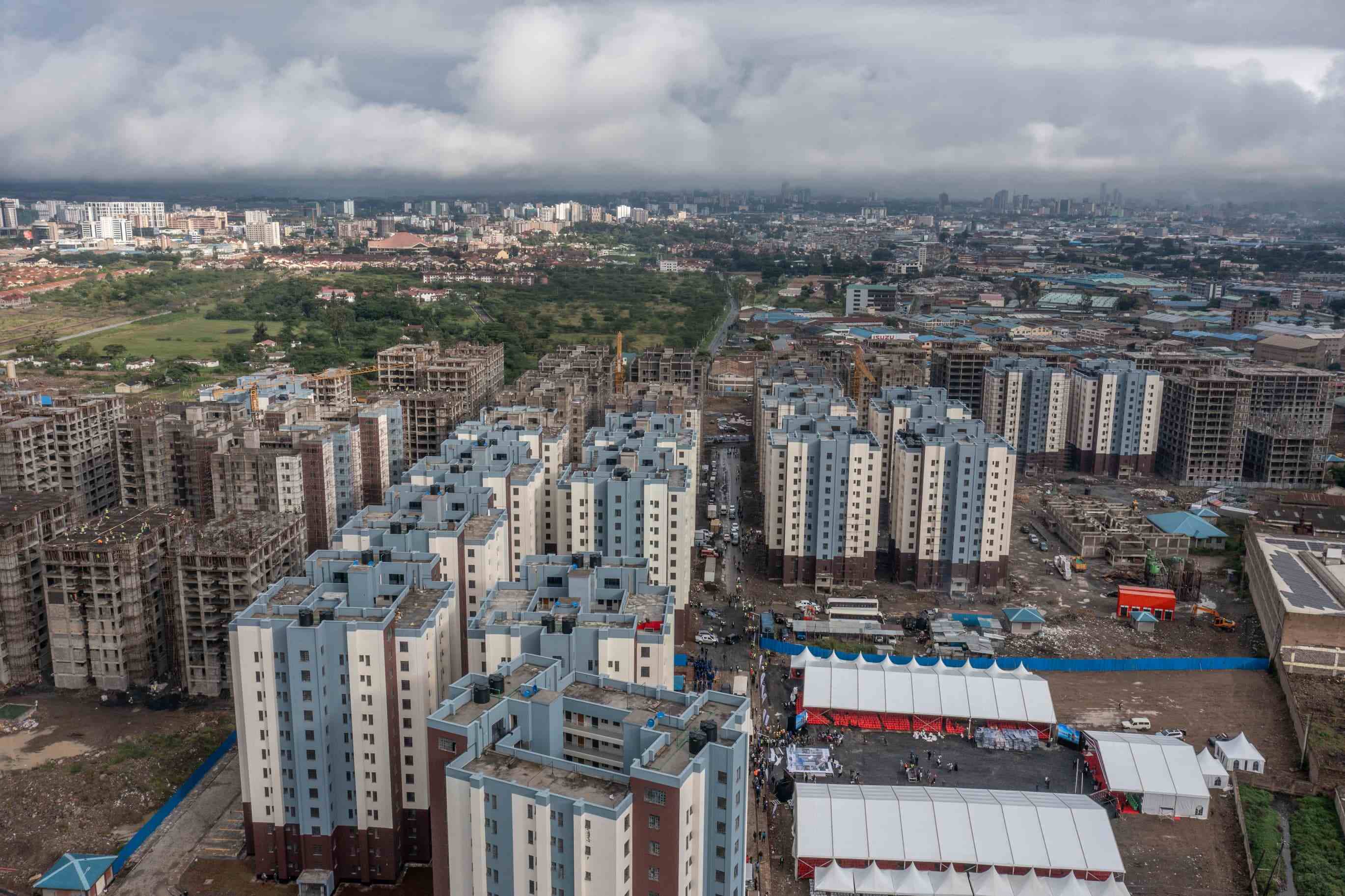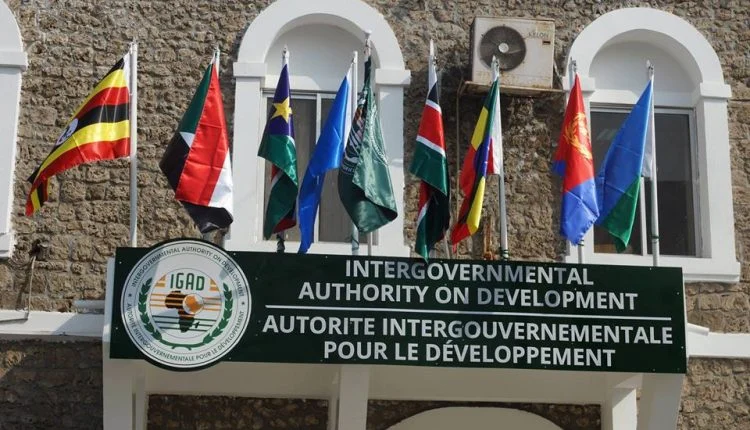Makongeni Estate set for redevelopment under Ruto’s affordable housing plan

Located near the Central Business District and key transport hubs, Makongeni sits on highly valuable land, drawing significant interest from developers.
Years of uncertainty for retired Kenya Railways workers and their families living in Makongeni Estate may finally come to an end. Many occupants have stayed in the estate for decades, often citing unpaid pension benefits as the reason for delaying relocation.
Speaking at a stakeholders’ meeting in Nairobi on Thursday, Makadara Deputy County Commissioner Philip Koima acknowledged the complexity of the matter, noting the strong historical and emotional links residents have with one of Nairobi’s earliest housing estates.
More To Read
- Kenya Railways adds extra Nairobi–Mombasa trains for festive season rush
- Parliament seeks Controller of Budget control of Sh63 billion Housing Levy to curb misuse
- PS Hinga defends Makongeni demolitions, says majority of tenants were paid Sh150,000
- Law Society of Kenya demands immediate halt to Makongeni demolitions over lack of compensation
- Only 54 of 540 acres properly titled for affordable housing, governors warn
- Makongeni residents protest planned demolitions under affordable housing project
Makongeni, built in the 1940s to accommodate railway staff during the colonial era, has grown into a multigenerational community deeply tied to Kenya’s transport sector. Mr Koima said the government values the dedication of these retired workers and remains committed to ensuring their interests are protected even as redevelopment plans move forward.
“Some of the current occupants are not the original employees but their children and grandchildren, who were born and raised here. Evicting them without proper consultation would be unfair and could create social tension,” he said as quoted by The Daily Nation.
The administrator reassured that no resident will be forced to leave before a solution acceptable to all parties is agreed upon, stressing that open dialogue remains the preferred approach.
“These pensioners gave their best years in service to this country. It would be unjust to relocate them or their families without first addressing the issue of unpaid pension arrears,” Koima added.
He confirmed that the estate will be redeveloped under President William Ruto’s Affordable Housing Programme, replacing ageing staff quarters with modern, high-density residential blocks.
The new development is expected to feature improved sanitation, utilities, and infrastructure while accommodating more families and promoting effective land use in line with Nairobi’s urban renewal objectives.
Kenya Railways pensioners will be prioritised for housing once construction is complete.
“After their pension dues are settled, they will be given priority to acquire the new units. The rent-to-own model will allow them to pay gradually while living in the houses,” Koima explained.
To ease financial pressure, the government will settle pension arrears in instalments, helping the Kenya Railways Pension Scheme manage its cash flow while providing relief to retirees.
Koima said the government is coordinating closely with the Ministry of Lands, the State Department for Housing, and the Kenya Railways Pensioners Scheme to ensure the process is transparent and orderly.
“We are committed to ensuring that every affected family is treated with dignity. The aim is not to displace but to transform Makongeni into a modern residential area that benefits both the government and the long-serving employees who built this country’s transport system,” he noted.
Some residents welcomed the assurances but expressed concern over the slow pace of pension payments, urging authorities to accelerate disbursement so they can plan for relocation or apply for new units.
Located near the Central Business District (CBD) and key transport hubs, Makongeni sits on highly valuable land, drawing significant interest from developers.
The redevelopment is expected to become a cornerstone of Nairobi’s affordable housing strategy and a model for similar projects on public land occupied by retired civil servants. Stakeholders are set to meet again in the coming weeks to finalise timelines for compensation and relocation.
Until then, families remain in limbo, holding on to hope that justice, fairness, and new homes will finally be delivered.
Top Stories Today
















































